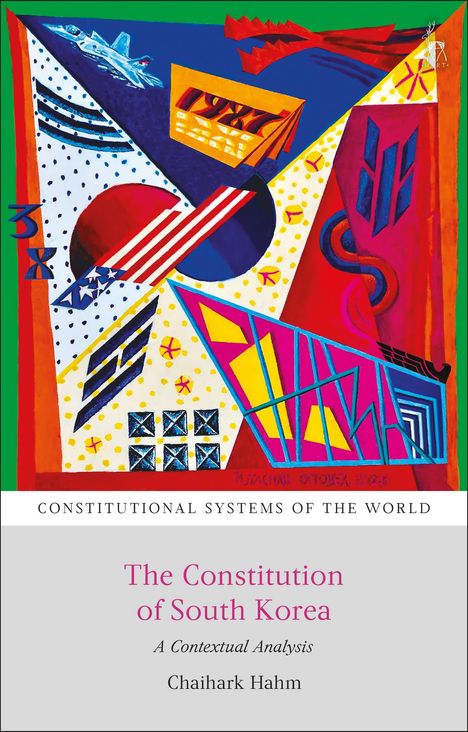Chaihark Hahm: The Constitution of South Korea
The Constitution of South Korea
Buch
- A Contextual Analysis
- Herausgeber: Peter Leyland, Andrew Harding, Benjamin L Berger, Rosalind Dixon, Heinz Klug
Artikel noch nicht erschienen, voraussichtlicher Liefertermin ist der 23.1.2025.
Sie können den Titel schon jetzt bestellen. Versand an Sie erfolgt gleich nach Verfügbarkeit.
Sie können den Titel schon jetzt bestellen. Versand an Sie erfolgt gleich nach Verfügbarkeit.
EUR 58,10*
- Bloomsbury Academic, 01/2025
- Einband: Kartoniert / Broschiert
- Sprache: Englisch
- ISBN-13: 9781509976348
- Bestellnummer: 11779951
- Umfang: 288 Seiten
- Gewicht: 454 g
- Maße: 216 x 138 mm
- Stärke: 25 mm
- Erscheinungstermin: 23.1.2025
Achtung: Artikel ist nicht in deutscher Sprache!
Klappentext
The constitutional system of South Korea is a work in progress, and this volume fleshes out and makes intelligible to foreign readers that process within the specific political and historical context of modern South Korea.The current South Korean Constitution of 1987 is the culmination of decades-long efforts by the South Korean people to achieve democratic self-government. It is the fruition of untold sacrifices made by dedicated citizens who tirelessly fought to rein in the power of the government under some form of constitutional rule. In that sense, it should be understood against the backdrop of South Korea's experimentation with constitutionalism that began at the turn of the last century. Yet, it also represents a radical break, the beginning of a new era which ended a long political history of 'constitution without constitutionalism'.
For the first time in the history of the South Korean nation, the constitution has become a living norm rather than an ornament, or a façade, for illegitimate or ineffectual governments. It has proven to be a binding law that matters not only for government leaders but also for private individuals. With the adoption, especially, of a system allowing the adjudication of constitutional issues at an independent court, the people have begun to realise that the constitution can be invoked to protect their rights and advance their interests. As a result, the South Korean Constitutional Court is being stretched to its limits with a great number of cases filed at its docket.
This book is an insightful new addition to Hart's successful series, Constitutional Systems of the World.


